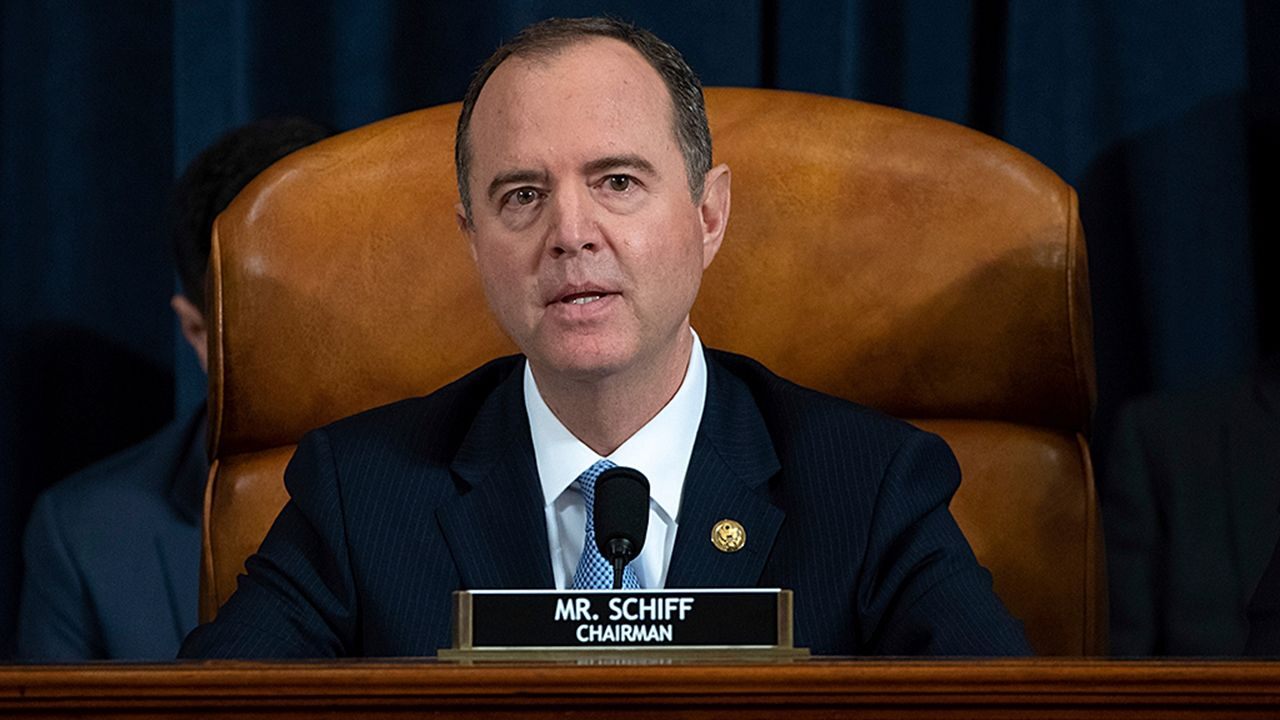
President Trump’s attorney, Jordan Sekulow, discusses U.S. Rep. Adam Schiff’s handling of the Trump impeachment.
Stock markets were on track to close at record highs on Wednesday, despite the first day of public impeachment hearings on Capitol Hill.
Continue Reading Below
The major indexes have largely ignored the proceedings, with political strategists and Wall Street analysts and economists concluding it’s unlikely a super-majority in the Republican-controlled Senate will find the president guilty of high crimes and misdemeanors.
The S&P 500 has gained 4.33 percent since House Speaker Nancy Pelosi announced a formal impeachment inquiry on Sept. 24. It’s up 1.89 percent since Oct. 31, when the House voted to move ahead with the process.
WATCH LIVE: TRUMP IMPEACHMENT INQUIRY HEARINGS
The odds of a change in the White House are low, given the “difficulty of unseating a President and the potential for continued GOP support of President Trump unless the investigations reveal undeniable wrongdoing,” said Citigroup Economist Dana Peterson.
A vote to impeach, which would lead to a Senate trial, is more likely in the Democratically-controlled House of Representatives, where the action requires a majority of only 50 percent plus one. The inquiry marks only the fourth impeachment process in the United States’ 243-year history. Former presidents Andrew Johnson (February 1868), Richard Nixon (1974) and Bill Clinton (October 1998) are the only other cases, but data is available for only the latter two.
TRUMP IMPEACHMENT HEARINGS LEAVE WALL STREET UNFAZED
The backdrop of the Nixon impeachment, however, was much different than what Trump faces. The U.S. economy “was weak and headed for a recession,” a research team at New York-based Wolfe Research wrote.
The Federal Reserve was aggressively raising interest rates to fight inflation that was above 11 percent. Additionally, the Watergate hearings began months before an OPEC embargo caused oil prices to more than double, gouging American pocketbooks and leaving long lines at gas stations.
From the time the Senate Watergate Committee began its nationally televised hearings on May 17, 1973, until President Nixon’s resignation on Aug. 9, 1974, the S&P 500 fell 23.4 percent, according to Dow Jones Market Data.
Stocks in this Article
$27782.37
+90.88 (+0.33%)
$3095.29
+3.45 (+0.11%)
$8484.570172
-1.52 (-0.02%)
Clinton didn’t suffer from such headwinds. The U.S. economy was strong in the late 1990s, growing at a 4.4 percent annual rate, and inflation was below 2 percent.
Equity market patterns from the second half of 1998, when Clinton’s impeachment began, are similar to those today, according to an analysis by Wolfe Research.
Asset performance during the period “should give us some hints” about the current situation, the Wolfe researchers wrote.
From the time the House began its inquiry on Oct. 8, 1998, until Clinton was found not guilty by the Senate on Feb. 12, 1999, the S&P 500 gained 12.9 percent, according to Dow Jones Market Data.
GET FOX BUSINESS ON THE GO BY CLICKING HERE
“History doesn’t repeat itself but it often rhymes,” the author Mark Twain said.


